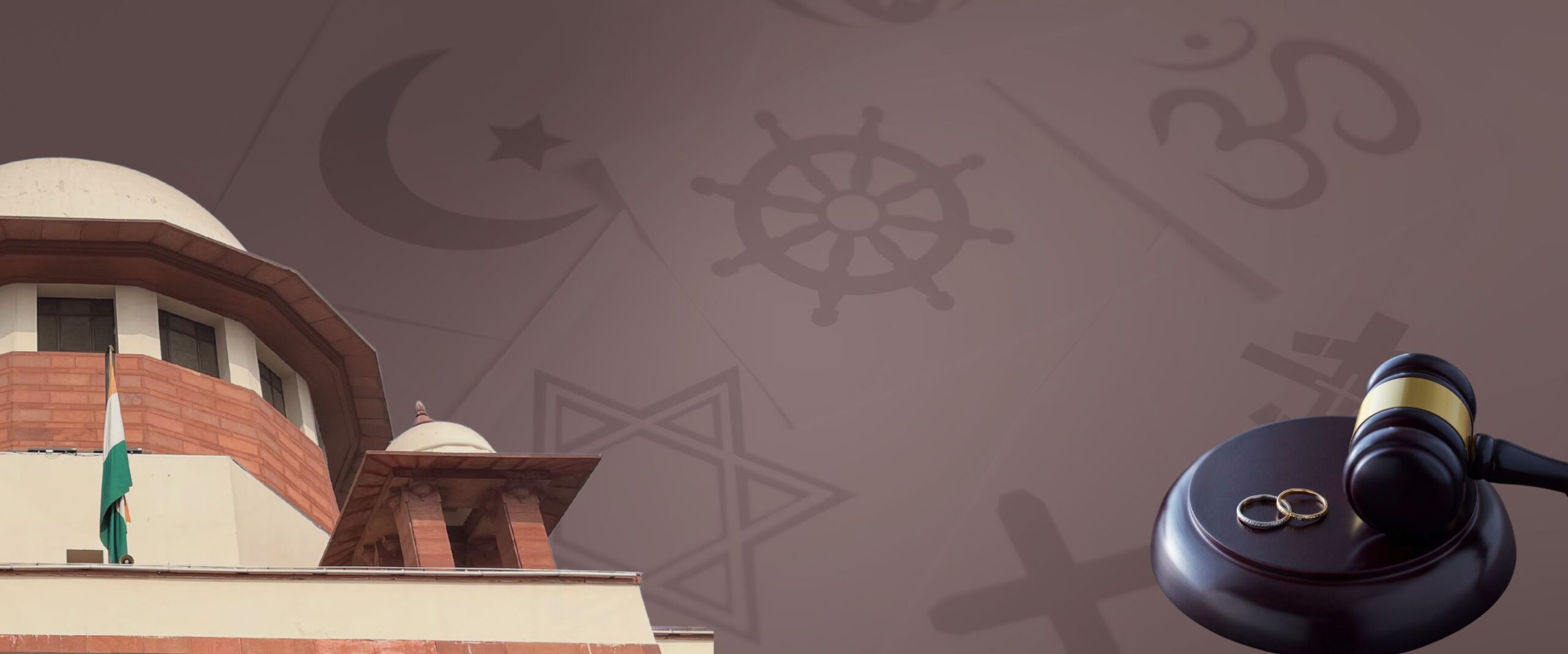Analysis
SC grants bail in Uttarakhand inter-faith marriage case
The SC's grant of bail in an inter-faith marriage case highlights the need to hear long-pending challenges to anti-conversion laws

On 19 May, a Bench of Justices B.V. Nagarathna and S.C. Sharma granted bail to a man accused under Sections 3 and 5 of the Uttarakhand Freedom of Religion Act, 2018 (UFRA) and under Sections 318(4) and 319 of the Bharatiya Nyaya Sanhita, 2023 (BNS).
Section 3 of UFRA prohibits religious conversion by misrepresentation, force, undue influence, coercion, allurement, fraudulent means, or by marriage. The provision also criminalises abetment or conspiracy to such conversion. Section 5 prescribes penalties for its violation.
Section 318(4) of BNS penalises cheating, which dishonestly induces a person to deliver property or alter or destroy valuable security, with up to seven years of imprisonment and a fine. Section 319 criminalises cheating by impersonation.
Strikingly, the Bench noted that the state “cannot have objection” to the couple residing together, since their marriage had occurred “with the consent of their respective parents”. However, it did not explain why parental approval was relevant when two adults had married consensually.
Background
Aman Siddiqui, the accused, also known as Aman Chaudhary or Raja, married a woman of a different faith in an arranged marriage, with the full knowledge and consent of both families. The couple’s engagement took place on 13 October 2024.
Some people and organisations raised objections to the union and registered an FIR against him on 12 December 2024, alleging concealment of facts. It also alleged that the wife supported the accusation of concealment. Aman’s parents were also named as co-accused, but were granted anticipatory bail.
He was arrested two days after his marriage. On 28 February, the High Court denied him bail.
The High Court’s problematic refusal
The High Court’s Order noted that on 11 December 2024, the husband submitted an affidavit acknowledging that his father is Muslim and his mother Hindu. He also undertook not to harm his wife or pressure her to convert, affirming she would be free to practise Hinduism and follow all its traditions.
The High Court also acknowledged the accused’s submission that although his father is a Muslim, he had given his mother full freedom to follow Hinduism. Further, his parents raised him as a Hindu.
Despite this, the High Court accepted the state’s allegation of religious concealment because the name of the accused’s father was substituted as “Miraj” in certain records. Aman’s counsel explained that this was done at the request of the wife’s family, implying that it was done to protect their privacy.
Further, the Order did not factor in the couple’s desire to live together despite the ongoing criminal proceedings against the husband and his parents: a fact which cast a doubt on the FIR’s claim that the wife supported the allegation of concealment.
Crucially, the High Court failed to acknowledge that if concealment had been intended, the husband would not have disclosed his father’s religion in the affidavit. Instead, it inferred misrepresentation simply because of the FIR’s timing.
Supreme Court: Bail ought to be granted
The Supreme Court set aside the High Court’s Order on the ground that the accused had already spent six months in judicial custody and a chargesheet had been filed. The Bench also held that the couple could continue living together.
However, the judges warned the husband not to misuse his liberty and to cooperate with the trial. They stated that the trial court could impose any conditions it deemed appropriate and cautioned that a violation would result in the cancellation of bail.
A missed opportunity?
By acknowledging the couple’s right to cohabit voluntarily, the top court appears to cast doubt on the FIR’s assertion that the wife supported the concealment claim. But it remains silent on what the trial court might impose as bail conditions. This raises concerns about whether they could hinder the couple’s peaceful life together.
In Shafin Jahan v Ashokan K.M., the Supreme Court affirmed that the right to marry a person of one’s choice is part of Article 21 of the Constitution. Yet, in this case, the Court leans on extraneous factors such as family approval and public disclosures of the marriage.
The Supreme Court’s Order raises a crucial question: Even if the engagement announcement or wedding invitation omitted references to the husband’s father’s religion, do such omissions amount to offences under the UFRA or the BNS?
The chilling effect of using these stringent provisions in such cases risks criminalising a lawful, consensual inter-faith marriage. Therefore, while the grant of bail is a welcome development, the Court’s Order perhaps unwittingly endorses the stereotypes behind the many anti-conversion laws in several states.
A broader Constitutional challenge
Pending before the Supreme Court currently are a batch of petitions challenging the constitutionality of anti-conversion laws in different states. Instances like the present case illustrate why the Court needs to take up the pending challenges with priority.
These laws with ambiguous phrases like “any fraudulent means” are at odds with legal and constitutional morality. They can be invoked even in the absence of any coercive attempt to convert, solely because a marriage occurred between people of different faiths.